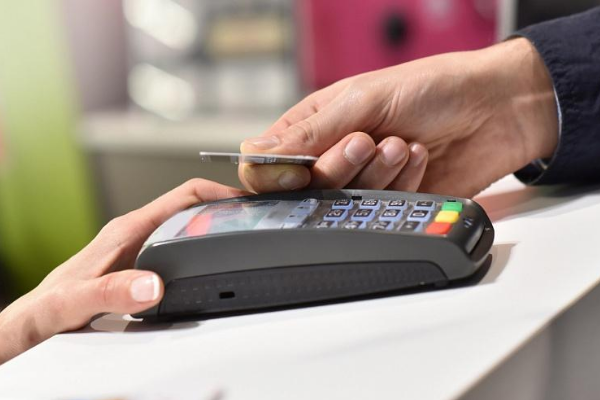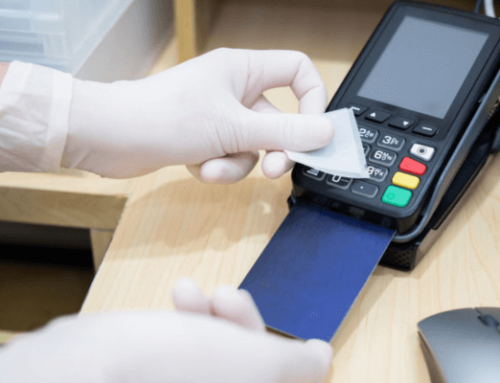
Cashless: what is it?
The answer contained in the most diverse dictionaries leads us to a single answer: an expression used to designate cashless payments, i.e. without notes or coins. The explanation, as you can see, is simple, but not sufficient to understand the true scope of this revolution in payments called Cashless.
Although the various cashless payment solutions have already been present in our society for a few years, the Covid-19 pandemic and the need to mitigate the transmission of the virus has forced us to put aside physical cash wherever possible and opt for credit/debit cards with Contactless technology (contactless) integrated or via a smartphone, wearable (wristband, watch, etc.) or RFID card.
Without cash limiting payment, customers opting for a cashless system can enter the amount of credit they want to spend or make the transaction directly from their bank to the merchant's bank.
The advantages, however, go beyond hygiene and immediate financial availability. Consumers and traders benefit greatly from the implementation of Cashless in their daily lives, and governments themselves can profit greatly from its introduction, as it also has a number of tax, anti-money laundering and anti-terrorism advantages, as it leaves a record of all transactions made.
Cashless: advantages for consumers
- more hygienic than money;
- ease and speed of payment;
- spending control (with each transaction you receive an email with the purchase details);
- security: no need to carry cash;
- shorter queues;
- better consumer experience;
Cashless: advantages for merchants
- greater security: the money doesn't have to be kept in cash;
- easy to close the box, as all the information is digitised;
- faster transactions and account credit;
- lower cost;
- real-time sales monitoring;
How do cashless payments work?
Let's start by saying that this technology doesn't require the use of money, but it's not ethereal; there is a transmission of monetary values between, for example, customer and merchant.
In the case of a Contactless card (credit or debit), it is enough for the bearer to approach a automatic payment terminal with this technology incorporated and in a few seconds the transaction was carried out without the need to dial the PIN.
The most widely used alternative forms of payment are payment via mobile phone or RFID cards or RFID wristbands, which are pre-credited in the same way as pre-paid cards. In the case of RFID wristbands or mobile phone applications, the consumer simply has to bring their device close to an automatic payment terminal (Physical TPA or mobile) prepared for the purpose so that the amount can be debited and the operation completed successfully. All this happens quickly and securely.
Cashless Economy
Capable of being implemented in various types of commercial establishments such as restaurants, shops, cinemas and discos, online commerce or even universities, this innovative payment technology is slowly changing the world economy. Gradually moving away from cash payments, the most diverse societies are entering what has been coined the "cashless economy".
In 2016, when instructions from central banks and health authorities did not yet advise payment via cards or wearables (smartphones, wristbands, etc.) with Contactless technology to the detriment of more traditional means of payment, countries such as Sweden and Denmark have already revealed their desire to do away with cash transactions by 2030 by taking measures such as abolishing notes and coins in public transport and tourist attractions. Moving down the map of Europe, we find several other examples in countries such as Greece or the Netherlands where 50% of in-store payments were made without cash in 2019.
Far from the European landscape, in tropical Brazil, events such as the 2014 Football World Cup, the 2016 Olympic Games in Rio de Janeiro or the Lollapalooza music festival also put cashless payments into practice, demonstrating the potential of these means of speeding up the process of acquiring a good or service.
Cashless in Portugal
Although the change is happening more slowly, the cashless economy has already arrived in our country. Between March and June this year, the weight of the Contactless doubled in the overall turnover of Portuguese businesses and the take-up of online payment methods by merchants grew by 333%, opening the door to a more cashless future in the years to come.
For REDUNIQ the future began to be mapped out yesterday, or rather last year, with a partnership with the Savage pop store that aimed to make the Lisbon restaurant the first of its kind with a cashless payment service. In practical terms, this meant that payments at the Savage pop store, which was open during 2019, were exclusively made with contactless card (debit or credit) or by mobile phone.
If yesterday it was a restaurant, this year Duque Brewpub has become Portugal's first cashless bar with REDUNIQ. From now on, this craft brewery will only accept Contactless payments made using cards, smartphones and wearables with this technology incorporated.
For these technological developments in the area of payments to become a reality, it was crucial that the TPA solution with integrated contactless REDUNIQ. In addition to preventing TPA and card (or smartphone, wearable, etc.) go from hand to hand, the REDUNIQ contactless payment terminals allow the economic agent, among other things, to effectively reduce the costs of handling money (optimised payment process and easier accounting).
What's more, the REDUNIQ Contactless TPA comes equipped with the only contactless technology in Portugal with PCI DSS certification, which ensures that the entire payment process is truly secure in all its dimensions.
Although it has not been integrated into either of the two aforementioned spaces, the REDUNIQ complements its Cashless offer with the REDUNIQ@PaymentsA product that allows merchants to accept remote card paymentsThis is done in a simple, practical and secure way by sending an e-mail to the customer.
With the Contactless TPA and the solution by online payments of @Payments at stake, the REDUNIQ has just taken the Cashless evolution to the next level with the addition of a new feature to the @Payments solution which allows merchants to accept WhatsApp payments or SMS, thus responding in a simple and innovative way to consumers' new payment habits.
In simple terms, the business joins the service and has access to a backoffice that allows it to issue payment links to its customers, which are in turn sent by email, SMS or WhatsApp. The customer receives the message, clicks on the link and enters a secure payment page. The business receives confirmation of payment and can create/make/ship its product to the customer with the confidence that payment has already been made.
As well as having no monthly fees, no minimum revenue, no membership costs and no need for integration or development, this new solution REDUNIQ allows merchants to make WhatsApp the nerve centre of their business. By taking orders, confirming orders, dispatching items, processing link payments and even sending invoices via the same platform (WhatsApp), redundancies are eliminated and the management of the business's financial resources is optimised. All payments made will be credited to the merchant's account within two working days of the purchase date.


